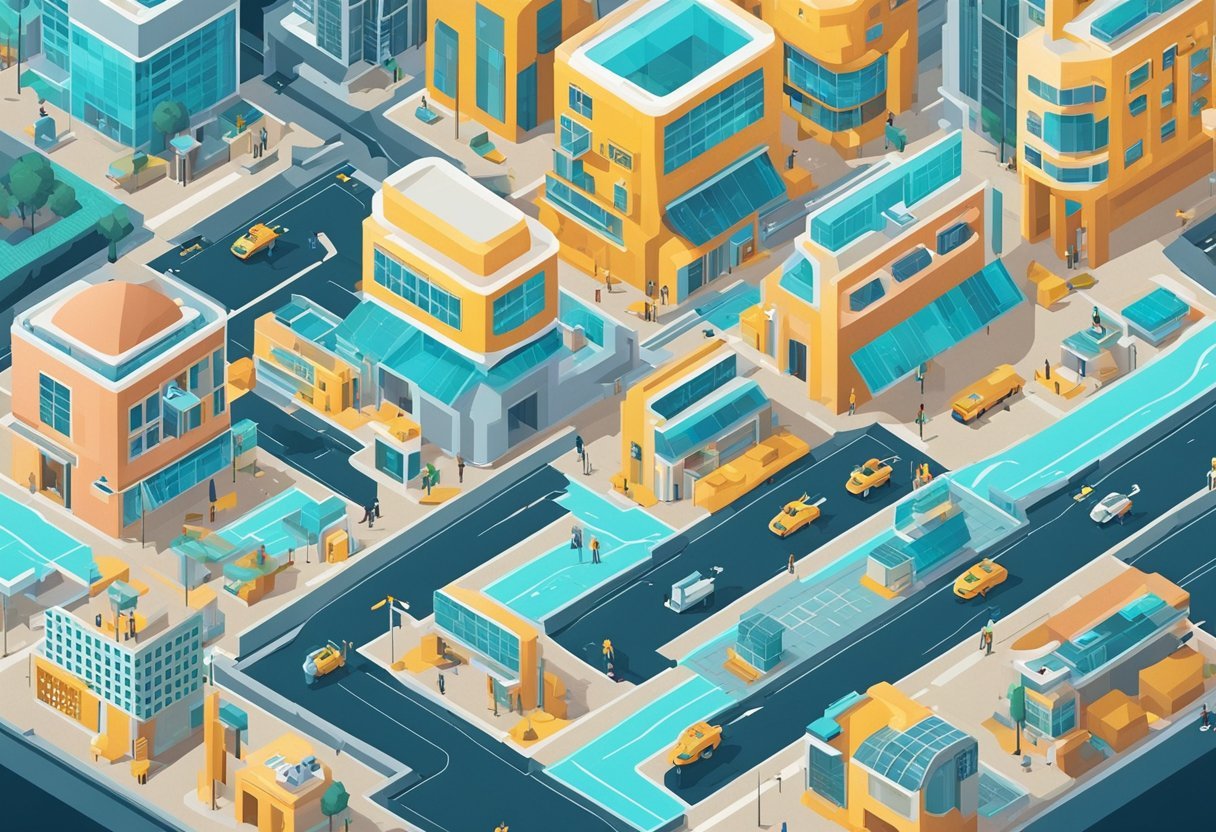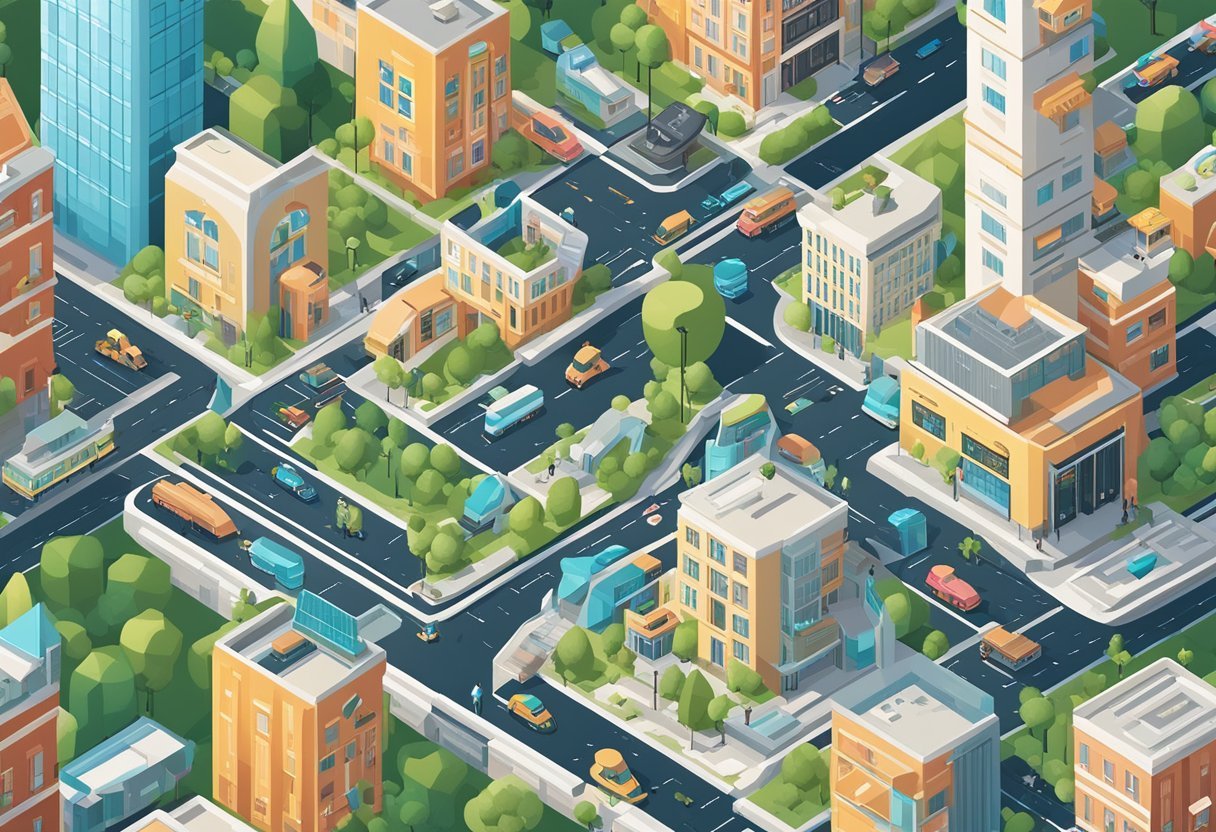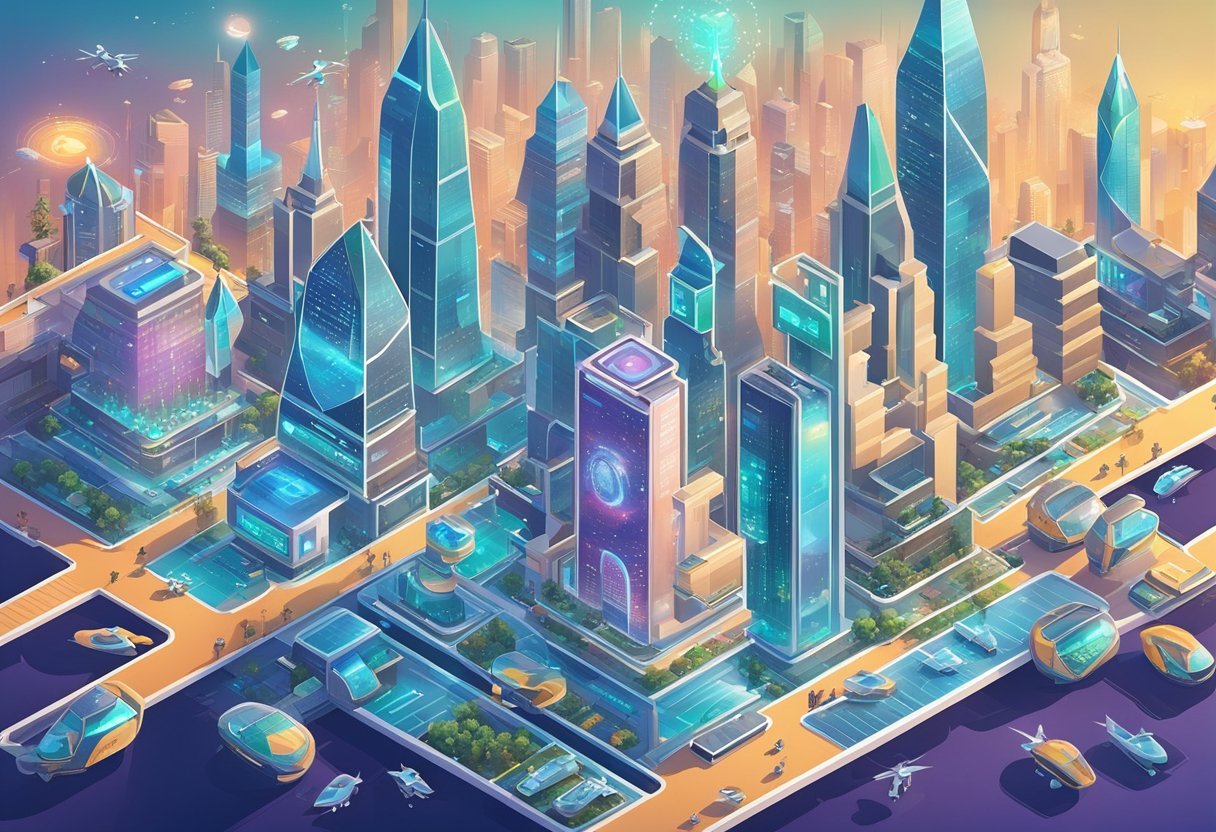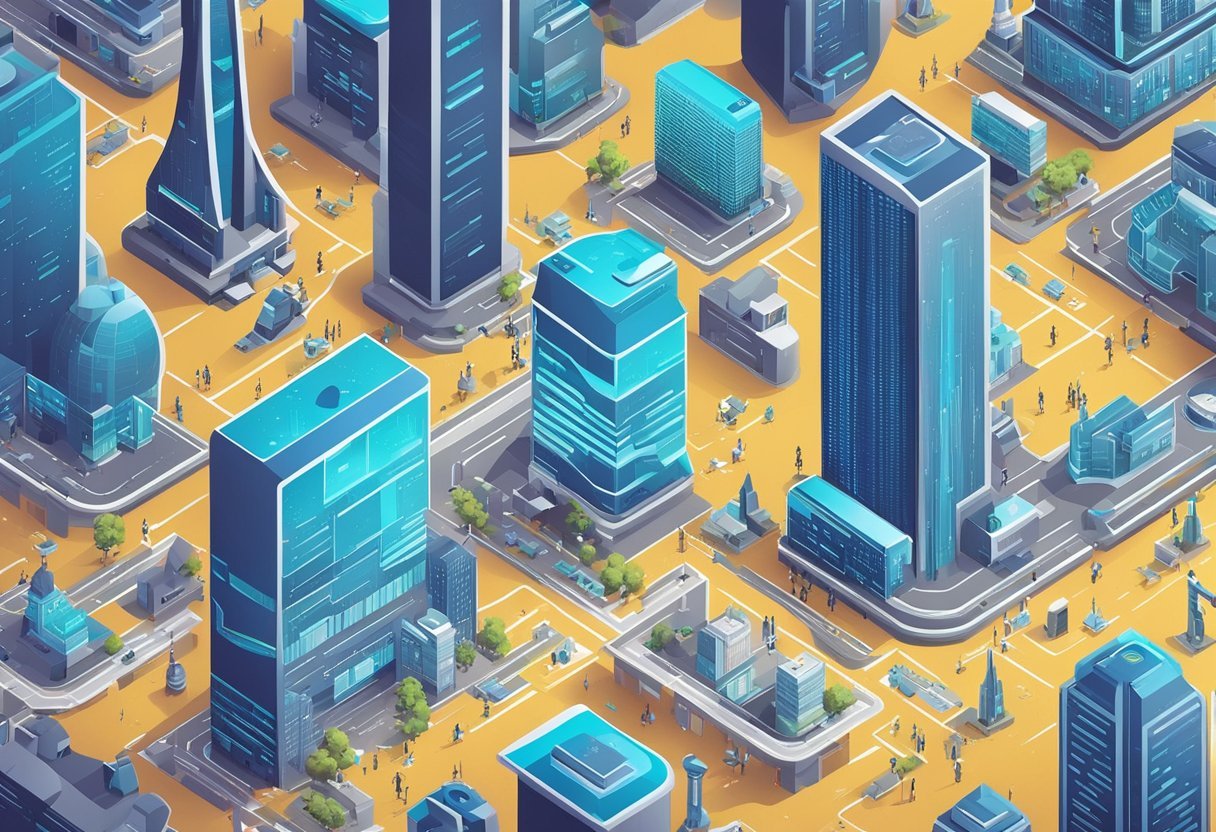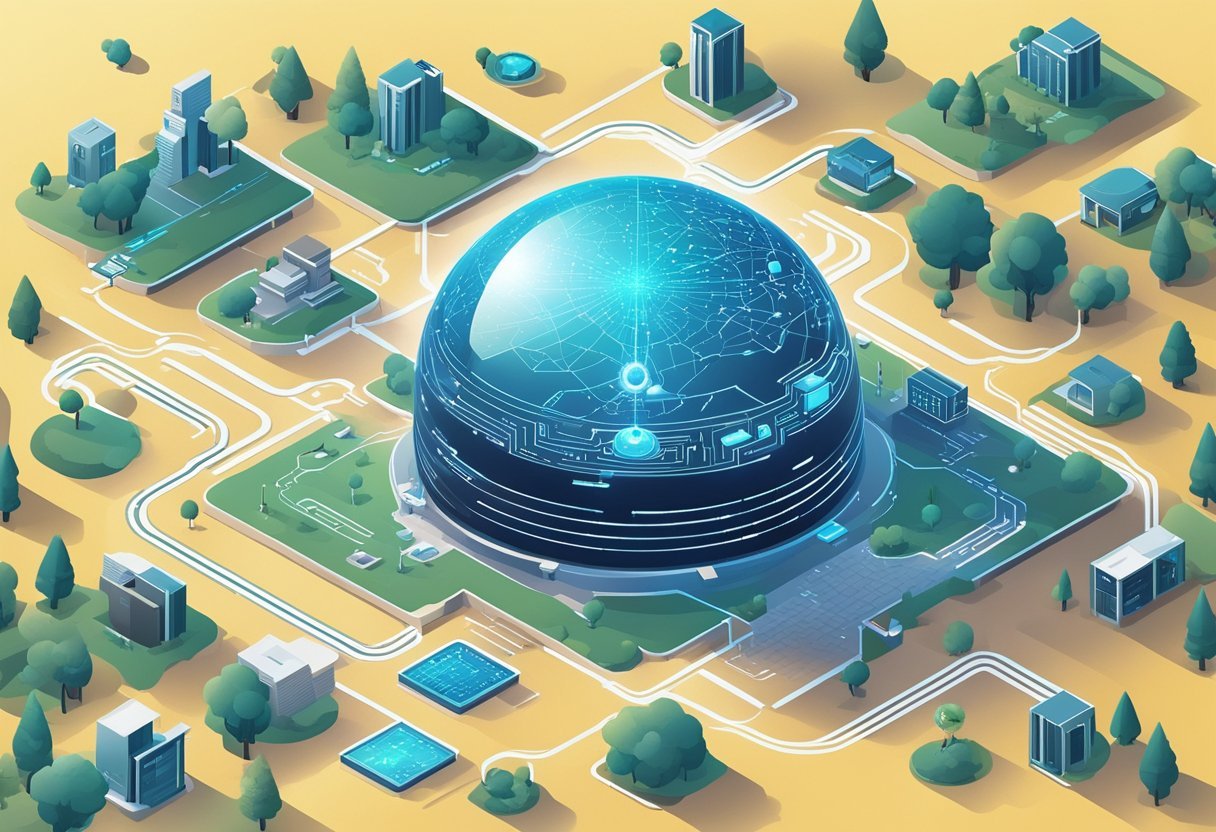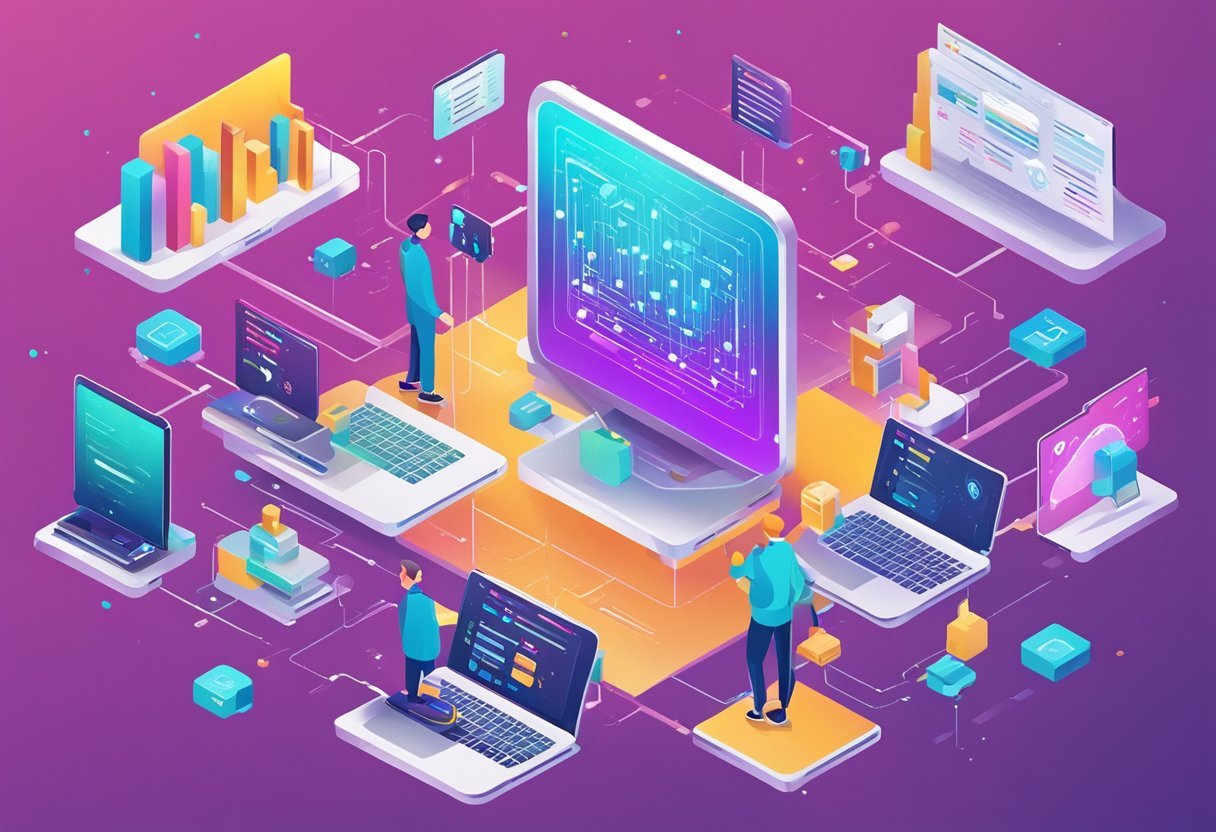2024 AI Innovations: Transforming Future Technologies & Society
Artificial intelligence stands at the threshold of ushering in a new era of innovation and transformation. As technology evolves rapidly, the year 2024 is poised to showcase remarkable advancements in AI, shaping the way individuals interact with machines and influencing decision-making processes across businesses and governments. The trajectory for AI is marked by the integration of advanced machine learning algorithms and the burgeoning field of deep learning, which collectively propel AI capabilities toward greater heights of autonomy and context-aware interactions.
As industries and societal structures adapt to the AI evolution, several key territories are coming into focus. For instance, health care is anticipated to significantly benefit from AI through enhanced diagnosis and personalized treatment plans, while the realms of transportation are expected to see the dawn of more sophisticated autonomous vehicles. AI is also expected to refine the scientific method by streamlining research and accelerating discoveries, potentially reshaping the very underpinnings of scientific inquiry.
The future of AI is not without its challenges and considerations, including ethical implications and the need for robust cybersecurity measures. Nonetheless, as AI continues to become an integral part of society, the possibilities it presents invite optimism with a prudent approach. The next wave of AI innovation stands to redefine how the world harnesses technology, promising a blend of improved efficiency and unprecedented opportunities that were once the realm of science fiction.
AI Evolution and Current Landscape
As artificial intelligence continues to reshape industries and redefine human capabilities, understanding its historical context and current state becomes critical. This section examines the progression from early AI concepts to today's advanced applications, the current status of AI as of 2024, and the influential entities leading the charge in AI development.
Historical Milestones and Recent Developments
Artificial Intelligence (AI) has transformed from theoretical research to real-world applications. Early breakthroughs, such as the perceptron in the 1950s, laid the groundwork for the evolution of machine learning. In recent years, the emergence of deep learning has accelerated progress, with neural networks (ANN) leading to successes in image and speech recognition.
1950s: Inception of AI as a field of study
1980s: Revival with the popularity of expert systems
2006: Geoff Hinton et al. popularize "deep learning"
2012: AlexNet wins the ImageNet challenge, revitalizing neural networks
Present: AI is integrated in everyday technology and services
State of AI in 2024
By 2024, AI has seen significant advancement in its capabilities, particularly in the areas of machine learning and deep learning. Integrations into cloud services have democratized access to powerful AI tools. Companies such as Google, OpenAI, and Microsoft lead with innovations, offering services that leverage TPUs, ASICs, and GPUs to expedite AI processing and learning tasks.
Key Statistics:
Machine Learning Models Trained: Over 1 million in various industries
AI Market Value: $500 billion with a projected annual growth of 20%
AI Patents Filed: Exceeding 300,000, reflecting a surge in innovation
Major Players and Key Technologies
In the landscape of AI, several key players stand out. Google's TensorFlow and TPUs, OpenAI models like GPT-4, and Microsoft's Azure AI services are central to current AI ecosystems. These entities push the envelope with cutting-edge hardware (ASICs and GPUs) and software solutions, fostering an environment ripe for innovation.
Google: Spearheading AI with TensorFlow and TPUs, advancing machine and deep learning.
OpenAI: Contributing groundbreaking models in natural language processing.
Microsoft: Providing robust cloud platforms and AI services for enterprise-level AI solutions.
Societal Impact of AI
The advent of artificial intelligence has been a significant driving force in creating changes across various dimensions of society. It redefines interactivity within daily lives, revolutionizes practices in healthcare and medicine, and recalibrates the dynamics of economy and employment.
How AI is Shaping Our Daily Lives
Artificial intelligence has intertwined with the fabric of daily life in ways that are both conspicuous and subtle. Smart devices and voice assistants, powered by AI, have become ubiquitous in homes, providing convenience and efficiency. They enable smart home automation, enhancing security and energy management. On the road, AI technologies power advances in autonomous driving, aiming not just for improved safety, but also for transforming the concept of personal transportation.
AI in Healthcare and Medicine
In healthcare and medicine, AI's transformative potential is profound. AI algorithms assist in diagnosing diseases, such as cancer, more accurately and much faster than traditional methods. The use of AI in medical imaging has not only accelerated the interpretation process but also increased the precision of the analyses, leading to early and more personalized treatment plans. Wearable technology equipped with AI monitors vital signs in real-time, providing critical data to both individuals and healthcare providers.
AI Influence on Economy and Employment
The economy and employment landscape is undergoing a significant transformation due to AI. It automates routine tasks, which can lead to the restructuring of job markets and potential displacement of certain types of employment. However, it also generates demand for new skill sets and job roles, particularly in AI development and ethical oversight. The influence of AI on the economy is evident in its capacity to create new markets, optimize supply chains, and introduce unprecedented levels of productivity. Yet it presents challenges such as ensuring data privacy and navigating the ethical use of AI technology.
Technological Advancements in AI
The realm of artificial intelligence is witnessing rapid growth with significant breakthroughs and applications reshaping numerous sectors. From enhanced machine learning techniques to robust hardware development and novel AI implementations, the landscape is evolving swiftly.
Breakthroughs in Machine Learning Techniques
Machine learning is at the core of AI's evolution, with innovations such as GPT-4 offering unprecedented capabilities in generative AI. Techniques involving neural networks have become more sophisticated, enabling machines to learn from vast amounts of data more efficiently. Multimodal learning approaches are pushing the boundaries further by integrating different types of data, such as visual, textual, and auditory, to create more comprehensive AI models.
Advancements in Hardware for AI
Hardware specifically designed to run AI applications is transforming the technological infrastructure. The development of AI accelerators has facilitated faster processing times for complex computations. This matters significantly for the growth of AI domains like computer vision and natural language processing, where real-time analysis is key.
Emerging Applications of AI in Various Domains
AI's tentacles are extending into diverse fields, bringing about transformative changes. In robotics, AI is enhancing autonomy, leading to more precise and intelligent machines capable of performing complex tasks. The healthcare sector is employing AI for diagnostics and personalized treatment plans, while text-to-video synthesis represents a ground-breaking application in media. Artificial General Intelligence (AGI) remains an aspirational goal, with research ongoing into creating systems that can understand, learn, and apply knowledge in a generalized way, similar to human intelligence.
AI Integration and Adoption
The landscape of AI integration is rapidly evolving, reshaping businesses and industries with robust applications. The adoption of AI across sectors signifies a transformative step, offering unprecedented efficiencies and capabilities.
AI in Business and Finance
In business and finance, AI's adoption is becoming increasingly prevalent, with sophisticated algorithms enabling better decision-making. Financial institutions now employ AI to spot fraudulent activities and perform high-frequency trading. Consequently, the finance sector witnesses significant gains in accuracy and efficiency. Risk assessments, powered by AI, are not just faster but more precise, driving the finance industry toward a data-driven future.
Expanding AI's Role in Education and Entertainment
Within education, AI fuels personalized learning experiences, with systems that adapt to individual student’s needs. This tailoring optimizes learning paths, making education more efficient. For entertainment, AI-generated content is revolutionizing the industry through game design that responds to player behavior and streaming services that personalize viewing recommendations, enhancing user engagement.
AI for Transportation and Autonomous Vehicles
Transportation is undergoing a sea change with AI integration. AI assists in optimizing route planning for logistics, reducing fuel consumption, and increasing overall efficiency. The progress of autonomous vehicles leans heavily on AI, especially with the technology's rapid advancement in recent years. Self-driving cars rely on AI for real-time decision making, revolutionizing how goods and people move from point A to B, mitigating risks, and promising to decrease traffic-related incidents.
Ethical and Societal Challenges
As artificial intelligence becomes more integrated into society, it brings forward a myriad of both ethical and societal challenges. These Challenges include navigating inherent human biases which can be amplified by AI, ensuring the privacy and security of personal information, and understanding AI's impact on governance and accountability.
Navigating AI and Human Bias
Artificial intelligence reflects the data it is fed, often mirroring the biases present in that data. Therefore, the mitigation of both human biases and AI-induced biases is critical. Research on the future of ethics in AI indicates that ethical concerns such as fairness and discrimination need to be at the forefront of AI development to prevent unfair practices and adverse outcomes.
Privacy, Security, and Responsible AI
Data privacy and security are paramount as AI systems handle vast amounts of sensitive data. It is essential to implement responsible AI practices that protect individuals' privacy rights and secure personal data against unauthorized access and cyber threats. Principles of responsible AI also demand transparency and the ability to explain AI decisions and processes to the affected parties.
AI and the Future of Governance
The integration of AI into governance involves complex ethical implications regarding accountability and the exercise of power. As AI systems take on roles in decision-making processes, it becomes crucial to establish clear lines of accountability to ensure that AI acts within the ethical boundaries set by society. Managing these aspects will dictate how AI can be leveraged to enhance governance without infringing on individual rights or freedoms.
The Path towards Artificial General Intelligence
The progression towards Artificial General Intelligence (AGI) involves the creation of machines capable of human-like reasoning and understanding. This journey is marked by significant challenges and transformative potential.
Understanding AGI and Its Potential Impact
Artificial General Intelligence represents a class of technology designed to learn and adapt with an autonomy similar to that of a human being. AGI promises the ability to understand complex concepts across various domains, transferring knowledge from one field to another with ease. It is projected that AGI could provide solutions to multifaceted problems in areas such as healthcare, environmental science, and economics, granting it a potentially seismic impact on society.
Technical and Ethical Roadblocks to AGI
The development of AGI faces numerous technical challenges. Constructing an AI that possesses the flexibility and depth of human cognition requires advancements in machine learning, natural language processing, and data handling capabilities. Ethically, AGI introduces questions about decision-making processes, biases in AI systems, and the value alignment problem, ensuring that AGI's goals are in harmony with human values.
Preparing Society for AGI
As AGI approaches reality, its integration into society warrants preparation on multiple fronts. Policymakers and technologists must collaborate to create a framework that addresses ethics, safety, and governance. Education systems may need to evolve to cultivate skills that cannot be replicated by AI, thus preparing the workforce for a future where AGI plays a pivotal role in various sectors. Public discourse on AGI should be fostered to build a common understanding of its benefits and risks.
Interactive AI and Personalization
The intersection of AI with personalized user interactions defines the modern era of digital innovation, catering specifically to individual preferences and behaviors across various sectors.
Chatbots and Digital Assistants
Chatbots and digital assistants, powered by advanced AI technology, facilitate real-time communication, providing immediate, tailored responses to customer inquiries. They manage tasks from scheduling meetings to answering customer service questions, significantly enhancing the user's experience through platforms such as email and messaging apps.
Personalized Medicine and Drug Discovery
In the realm of healthcare, AI is revolutionizing personalized medicine and drug discovery. By analyzing vast datasets, AI can predict individual responses to different treatments, leading to highly personalized care plans. Moreover, AI accelerates the drug discovery process by identifying potential candidates for new medications more efficiently, saving years of research and development.
Customized AI Platforms for Individual Needs
AI technology is increasingly adaptable, leading to the emergence of customized AI platforms designed for the unique demands of individual lives. These platforms learn from each interaction, further refining their ability to assist with personal and professional tasks, ensuring a seamless and intuitive user experience tailored to each individual.
Future Projections and Science Fiction
The intersection of AI’s reality and its portrayal in science fiction provides a fascinating lens for understanding future projections. Science fiction has long provided inspiration for real-world technological advancements, while current predictions about AI reveal what may soon move from fiction to fact.
Predicting the Next Decade of AI Development
Over the next decade, AI development is poised to accelerate, transforming industries and altering daily life. Current progress indicates that machine learning and automation will enhance efficiency across sectors, from healthcare diagnostics to financial services. The integration of AI in everyday devices is expected to continue, making technologies like smart homes and personalized shopping experiences more sophisticated and widespread.
AI in Science Fiction vs. Reality
Science fiction often portrays AI as sentient beings capable of complex emotions, a scenario that remains speculative in reality. In contrast, actual AI advancements focus on specialized applications such as natural language processing and predictive analytics. While autonomous vehicles, as discussed in The Future Of Artificial Intelligence, are a common theme in science fiction, they are becoming a practical reality, indicating a convergence of the two realms.
Long-term AI Predictions and Societal Change
Looking further ahead, long-term AI predictions suggest profound societal change. The potential exists for AI to revolutionize education through personalized learning and to entertain through increasingly interactive and immersive simulations. However, the impact on employment and societal structures necessitates careful consideration and proactive policy-making, as explored in What can science fiction tell us about the future of artificial.... These predictions paint a picture of a future where AI reshapes society, challenging humanity to adapt to a new, co-evolved reality.

